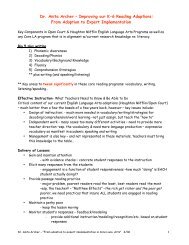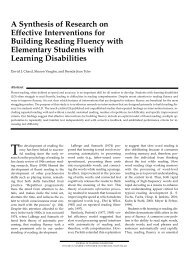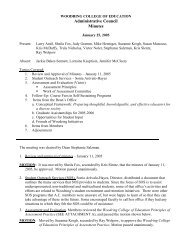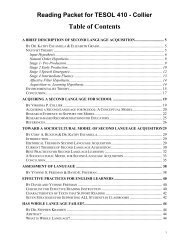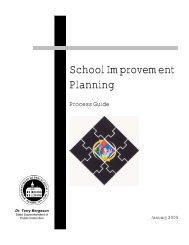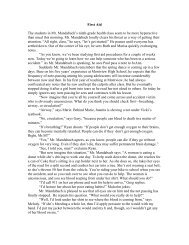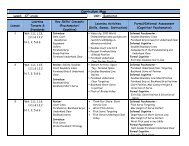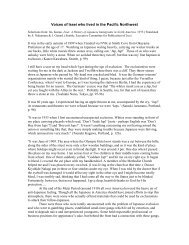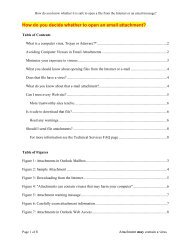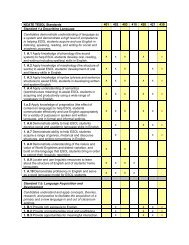Art Un ticle I.1 ited Sta In the ates News - Woodring College of ...
Art Un ticle I.1 ited Sta In the ates News - Woodring College of ...
Art Un ticle I.1 ited Sta In the ates News - Woodring College of ...
- No tags were found...
Create successful ePaper yourself
Turn your PDF publications into a flip-book with our unique Google optimized e-Paper software.
The Significance <strong>of</strong> Culture Based Communicative Behavior in SchoolA variety <strong>of</strong> cross cultural communication problems can arise in school, and it is important thatteachers not automatically blame <strong>the</strong> student or <strong>the</strong> student's family or culture. Problems <strong>of</strong>tenresult from misunderstandings or value conflicts between teachers and students who are obeyingdifferent culturally based communication rules. Some common problems linked to cultural andcommunicative diversity are presented in Table V.Table V: Problems That May Result From Culture and Communication Conflicts in <strong>the</strong>ClassroomStudent CharacteristicsDiverse CulturalAssumptionsDiverse VerbalBehaviorDiverse NonverbalBehaviorDiverse Story-Tellingand ConversationalRulesSome examples <strong>of</strong><strong>In</strong>appropriate ResponsesNegative attitudes towardsdialect variationLower student expectationsExcessive interruptionsDiversity ignored in teachingprocess<strong>In</strong>sufficient attention to studentspeechFrequent misunderstandingsand misinterpretations <strong>of</strong>studentPerception <strong>of</strong> student asdisorganizedPerception <strong>of</strong> student as poorthinkerPerception <strong>of</strong> communicationdifferences as disciplineproblemPerception <strong>of</strong> communicationdifferences as social insults(unintentional)Some Examples <strong>of</strong> Possible Impacton StudentLowered self-imageLowered achievement and excessivespecial education placementsLow student participation;disproportionately low placement intalented and gifted programsLowered self-expectationsExcessive speech/language <strong>the</strong>rapyplacementsLowered achievement in oralstandard EnglishLowered achievement and academicself-conceptPerception <strong>of</strong> frequent social insults(unintentional) from teachers ando<strong>the</strong>r studentsFrequent misunderstandings andmisinterpretations from personneland o<strong>the</strong>r studentsPerception <strong>of</strong> negative schoolclimate<strong>In</strong>terpersonal / intergroup conflictsPoor performance on tests andassessments© 2008 Dr. Ca<strong>the</strong>rine CollierAll Rights Reserved64




